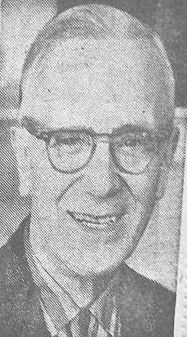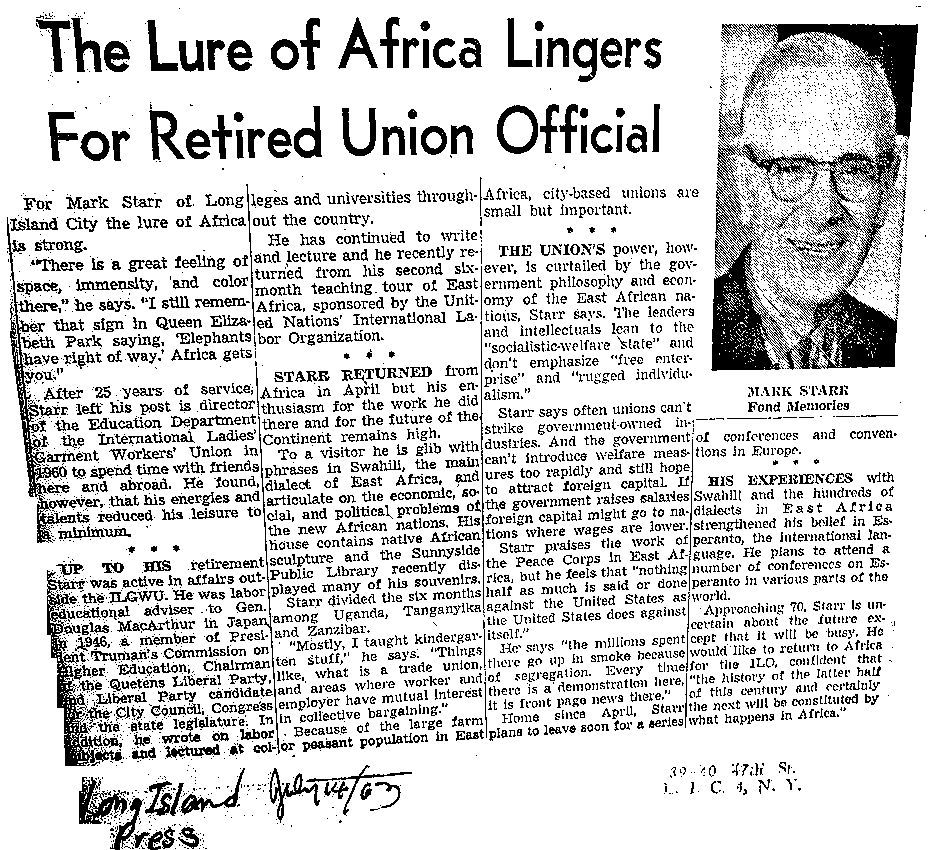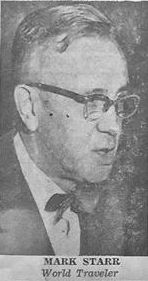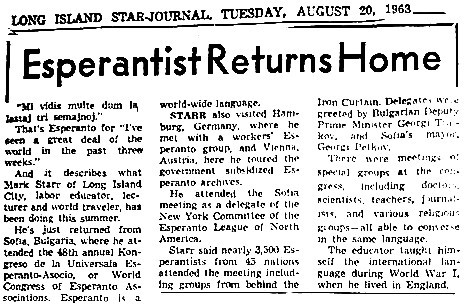The Lure of Africa Lingers
For Retired Union Official
For Mark Starr of Long Island City the lure of Africa is strong.
“There is a great feeling of space, immensity, and color there,” he says.“I still remember that sign in Queen Elizabeth Park saying, ‘Elephants have right of way.’ Africa gets you.”
After 25 years of service, Starr left his post is [sic] director of the Education Department of the International Ladies’ Garment Workers’ Union in 1960 to spend time with friends here and abroad. He found, however, that his energies and talents reduced his leisure to a minimum.
* * *
UP TO HIS retirement Starr was active in affairs outside the ILGWU. He was labor educational adviser to Gen. Douglas MacArthur in Japan in 1946, a member of President Truman’s Commission on Higher Education, Chairman of the Queens Liberal Party, and Liberal Party candidate for the City Council, Congress, and the state legislature. In addition, he wrote on labor subjects and lectured at colleges and universities throughout the country.
He has continued to write and lectire and he recently returned from his second six-month teaching tour of East Africa, sponsored by the United Nations’ International Labor Organization.
* * *
STARR RETURNED from Africa in April but his enthusiasm for the work he did there and for the future of the Continent remains high.
To a visitor he is glib with phrases in Swahili, the main dialect of East Africa, and articulate on the economic, social, and political problems of the new African nations. His house contains native African sculpture and the Sunnyside Public Library recently displayed many of his souvenirs.
Starr divided the six months among Uganda, Tanganyika and Zanzibar.
“Mostly, I taught kindergarten stuff,” he says. “Things like, what is a trade union, and areas where worker and employer have mutual interest in collective bargaining.”
Because of the large farm or peasant population in East Africa, city-based unions are small but important.
* * *
THE UNION’S power, however, is curtailed by the government philosophy and economy of the East African nations, Starr says. The leaders and intellectuals lean to the “socialistic-welfare state” and don’t emphasize “free enterprise” and “rugged individualism.”
Starr says often unions can’t strike government-owned industries. And the government can’t introduce welfare measures too rapidly and still hope to attract foreign capital. If the government raises salaries foreign capital might go to nations where wages are lower.
Starr praises the work of the Peace Corps in East Africa, but he feels that “nothing much is said or done against the United States as the United States does against itself.”
He says “the millions spent there go up in smoke because of segregation. Every time there is a demonstration here, it is front page news there.”
Home since April, Starr plans to leave soon for a series of conferences and conventions in Europe.
* * *
HIS EXPERIENCES with Swahili and the hundreds of dialects in East Africa strengthened his belief in Esperanto, the international language. He plans to attend a number of conferences on Esperanto in various parts of the world.
Approaching 70, Starr is uncertain about the future except that it will be busy. He would like to return to Africa for the ILO, confident that “the history of the latter half of this century and certainly the next will be constituted by what happens in Africa.”





